In today’s digital world, consumers increasingly turn to search engines to find local services, including locksmiths. However, the keyword phrase ‘locksmith near me’ is not always the reliable tool for finding the quality locksmith services that many people expect.
This blog post delves into the reasons why this popular search query may be failing consumers and what can be done to mitigate these issues.
We aim to educate you and help you learn more about finding a truly legitimate locksmith. This will help you avoid the terrifying and costly issue of hiring a fake locksmith.
While each search engine returns different results that their algorithm believes are the most relevant results, the locksmith industry is rife with scammers, lead generation websites, and lead aggregators.
Misleading Search Results and Scams Galore
One of the primary issues with searching ‘locksmith near me’ is the prevalence of misleading results and outright scams. Some businesses manipulate search engine optimization (SEO) techniques to appear at the top of search results, despite not being legitimate locksmith services.
In most cases, it’s difficult for leading industry professionals to identify which websites or map listings are connected to legitimate businesses with trained professionals.
How are results displayed?
- Search results typically show ‘Guaranteed’ paid ads at the top.
- Below those paid ads, you’ll see more Pay-Per-Click ads.
- Then, you’ll see Map listings, normally a pack of 3 companies.
- Finally, you’ll see organic websites.
What to be aware of and avoid?
- When looking at a list of search results, you will notice websites with the exact city/state/ + keyword as their domain name. There are usually stock images and low prices displayed.
- Paid ads with an extraordinarily high amount of reviews.
- Company names that exactly match your City + Locksmith terminology.
These companies often operate as middlemen, outsourcing your request to local independent subcontractors who may not be skilled or insured. Depending on state and local laws, they may also fail to obtain proper licensing as well. In worse cases, the intent is to scam consumers by overcharging, performing unnecessary work, or using the opportunity to case a home for a future burglary.
Lack of Verification
Search engines do not always verify the legitimacy or quality of the locksmiths listed in their results. This lack of verification means that anyone with a bit of SEO knowledge can rank highly for ‘locksmith near me,’ regardless of their qualifications or intentions. Consumers expecting search engines to filter out untrustworthy businesses are often disappointed.
Furthermore, the verification efforts do not necessarily confirm if a business is capable of performing a job. The goal is to verify that the business is established.
What’s wrong with verifying a business’s legitimacy?
- On its surface, verifying the legitimacy of a business sounds good. However, it’s easy to file paperwork and become a business. There are now more map listings and paid ad results than ever before because this is the way to get more exposure, and the scammers know it. They understand that customers in need of a locksmith typically click the first result they see and trust that they’ll get a better quality of service because it’s a sponsored ad.
- Verifying a company’s ability to perform a given task at a reasonable price is what’s needed to stop locksmith scams from happening every day across the US.
Inaccurate Local Results
The ‘near me’ part of the search query is supposed to ensure that the results are relevant to the searcher’s location. However, the accuracy of these local results can be hit-or-miss. Factors like your device’s location settings, the search engine’s interpretation of “near,” and the locksmith’s ability to manipulate local SEO can all affect the relevance of the results. This can lead to situations where the locksmiths listed are not actually nearby, leading to longer wait times and higher charges for travel.
What’s wrong with seeing the closest locksmiths to me?
- The ‘near me’ search creates an opportunity for these scamming locksmiths to create multiple fake company map listings all over. This creates the illusion of choice. The fact is, oftentimes, there is one owner with the same technicians who controls multiple map listings and multiple paid ad listings.
- To satisfy many search engines’ requirements to have a map listing which increases their exposure and gets them more calls, such as on Google, these companies will rent small offices. These offices should be for walk-in customers, but are often ‘by appointment only’ and rarely staffed.
Homogenization of Results
The algorithms that prioritize search results tend to favor certain SEO tactics over others, leading to a homogenization of results. This means that many unique, highly skilled locksmiths who might not be as versed in digital marketing get buried under a sea of more SEO-savvy, but potentially less qualified, providers.
As a result, consumers may miss out on high-quality services simply because those businesses don’t rank as highly in search results.
If a company ranks higher, it must be better, right?
- Not all the time. It is true that a well-established local company can outrank fraudulent companies because of their prominence and local notoriety, but they’re fighting an uphill battle. For instance, SEO algorithms constantly change. Plus, the fake companies will create multiple websites meant to help them rank for very specific key terms and thus, generate calls.
- In some instances, you will see search results for unmanned kiosks or locksmith services tied to a big box store that either cannot perform the intended service request or may utilize a third-party locksmith who may not have been properly vetted.
Increased Costs Forced onto the Consumer
One significant but often overlooked factor contributing to higher costs for consumers using ‘locksmith near me’ searches is the prevalence of paid advertisements.
Businesses that pay for ads are given top placement in search results, regardless of their service quality or pricing fairness. These companies typically recoup their advertising expenses by charging higher rates for their services. As a result, consumers might end up paying a premium for locksmith services that are no better than those offered by non-advertised professionals. This system not only distorts the true competitive landscape but also unfairly penalizes consumers financially, pushing them towards costlier options under the guise of convenience and immediacy.
Marketing is expensive, what’s wrong with advertising?
- Advertising is perfectly normal; however, lead-generating companies that have a network of independent contractors often sell their leads for a percentage of revenue made. For instance, let’s say you call because you need a new car key made. A dispatcher will answer your call very generically with ‘locksmith’. Then they’ll ask you for your address. Once you give them your address, they’ll likely dispatch someone, even if you don’t officially hire them. (That’s another topic entirely). The technician is then offered a lead but must give the lead-generating company upwards of 50% for the job. For that technician to make what they would normally charge, let’s say $200, they must find a way to charge you $400 for the same service. This normally entails creating bogus reasons to charge higher prices. We’ve heard horror stories of folks being charged upwards of $16,000 for lock-changing services at their home. Then, to add insult to injury, these technicians will name-drop legitimate companies to obfuscate who the real perpetrators are.
How to Avoid These Pitfalls
- Verify Business Credentials: Take the time to research locksmiths before making a call. Look for reviews on third-party sites, check for business licenses, and ask for references.
- Seek Recommendations: Ask friends, family, or local social media groups for locksmith recommendations. Personal experiences can lead you to reliable services.
- Use Trusted Directories: Instead of relying solely on search engines, use trusted directories or professional locksmith associations to find qualified providers. 1-800-Unlocks takes the time to talk with each locksmith about their background, how they got into locksmithing, their skillsets, and average pricing. Plus, we delete any company that we find to be violating our Professional Guarantee. Beyond that, we do not charge per call or per lead because we don’t want the locksmith to feel forced to charge the consumer higher prices.
- Be Specific in Searches: Instead of a generic ‘locksmith near me’ search, try including specific needs or certifications in your search query, such as ‘certified automotive locksmith.’
In conclusion, while ‘locksmith near me’ searches are convenient, they come with significant drawbacks due to issues like misleading results, scams, lack of verification, inaccurate local results, and the homogenization of search results. By being more discerning in how we search for and select locksmith services, consumers can protect themselves from these pitfalls and find more reliable, high-quality locksmiths to meet their needs.
Author: Sam Wilson
I am a licensed locksmith and the owner of 1-800-Unlocks. The goal of our locksmith directory is to provide a safe place for customers to find a local legitimate locksmith and avoid the pitfalls of being a victim of scamming locksmiths.





